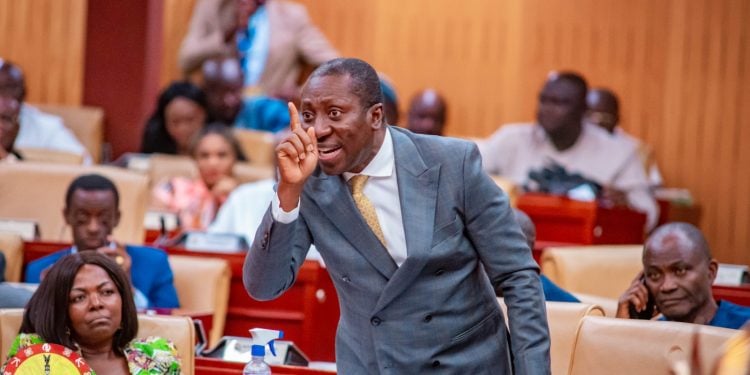On October 17, 2024, the Majority Caucus in Parliament demonstrated their dissatisfaction by staging a dramatic walkout in response to Speaker Alban Bagbin’s ruling that declared four parliamentary seats vacant. This decision has significantly escalated tensions within the parliamentary community, particularly among the Members of Parliament (MPs) from the New Patriotic Party (NPP), who felt aggrieved by the Speaker’s approval of the motion. The walkout, led by Majority Leader Alexander Afenyo-Markin, underscored the deepening divisions between the different political factions within the Parliament, showcasing the intense feelings surrounding the electoral process as the nation approaches upcoming elections.
The motion resulting in the walkout was spearheaded by former Minority Leader Haruna Iddrisu, who argued that certain MPs intending to run as independent candidates in the upcoming December elections should vacate their parliamentary seats as mandated by constitutional provisions. This move aims to clarify the implications of changing party affiliations during election cycles and aims to enforce a strict legal interpretation about parliamentary membership. The affected MPs include Cynthia Morrison from Agona West, Kojo Asante from Suhum, Andrew Asiamah from Fomena, and Peter Kwakye Ackah from Amenfi Central, all of whom had expressed a desire to contest the elections independently from their respective party affiliations.
The underlying constitutional argument is based on the principle that announcing intent to contest elections independently leads to a presumed forfeiture of party affiliation. This interpretation raises critical questions about the balance of power within the Parliament, as it dissects the fundamental rights of MPs to pursue their political aspirations while maintaining their legislative responsibilities. The implications of such rulings can significantly alter the dynamics within the Parliament, particularly as different parties gear up for an electoral showdown.
The confrontational atmosphere reached its peak with Majority Leader Alexander Afenyo-Markin publicly clashing with Speaker Bagbin following the controversial ruling. The Majority Leader’s expression of dissent reflects a broader sentiment within the NPP, indicating that the conflict extends beyond procedural disagreements and touches on deeper ideological divides. This incident also highlights the role of the Speaker in managing parliamentary proceedings and maintaining the delicate balance of authority among disparate political factions.
As the walkout unfolded, it brought to the forefront many issues related to parliamentary procedure, party loyalty, and electoral integrity. The implications of the ruling extend well beyond the immediate conflict; they speak to the ongoing struggles of political identity and allegiance that characterize the current electoral landscape in the country. The tension between the need for accountability and the right to political choice continues to fuel debates among lawmakers and the public alike, making it a pivotal moment in the national discourse on governance.
In conclusion, the dramatic walkout by the Majority Caucus reveals the escalating tensions and complex dynamics within Parliament in light of upcoming elections. The decision to declare the parliamentary seats vacant strikes at the heart of electoral strategy and party politics, highlighting the risks and challenges MPs face when seeking independent pathways. As the political landscape shifts, the broader implications for governance and representation remain uncertain, putting the administration’s ability to navigate such conflicts to the test amid an increasingly polarized electorate.


